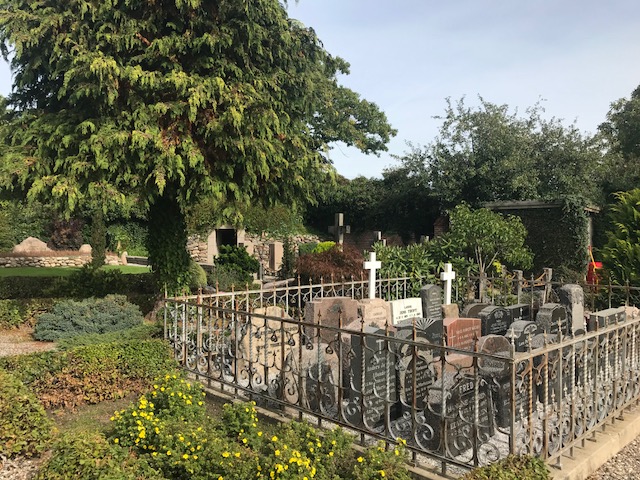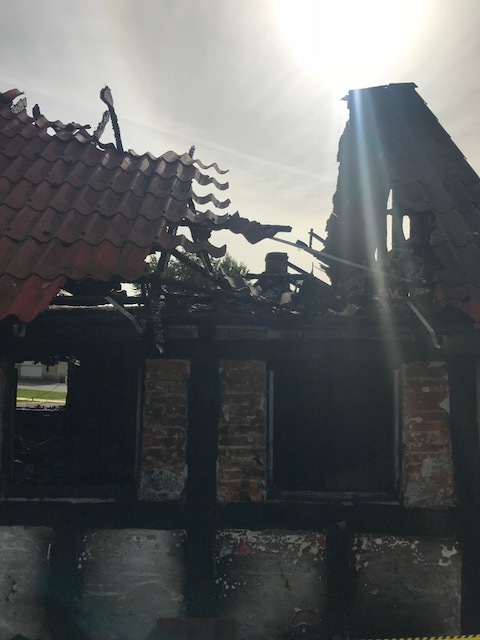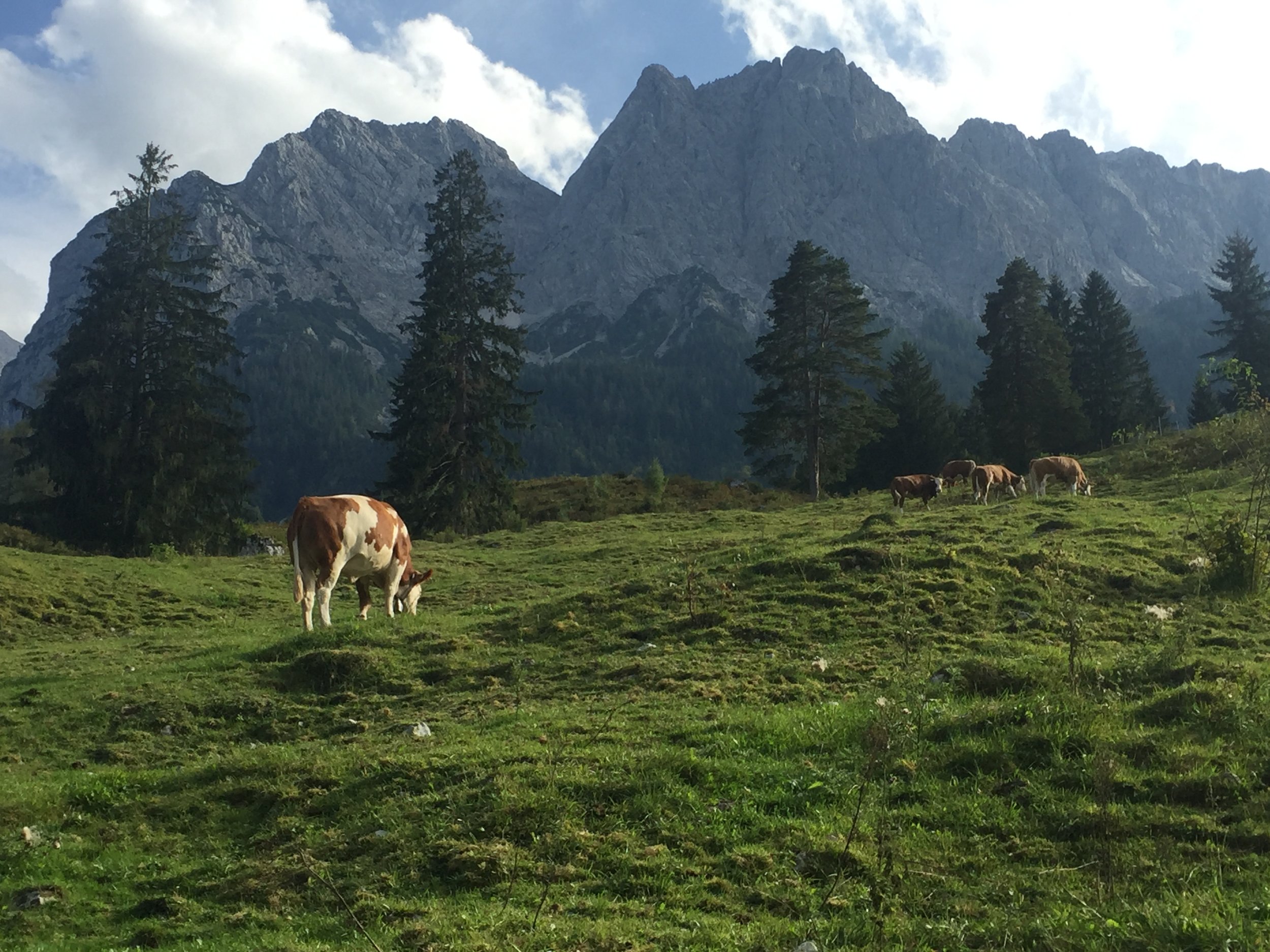“I do not pretend to understand the moral universe. The arc is a long one. My eye reaches but little ways. I cannot calculate the curve and complete the figure by experience of sight. I can divine it by conscience. And from what I see I am sure it bends toward justice.”
Theodore Parker (Unitarian Minister and abolitionist. This quote is an excerpt from a sermon he delivered in 1853.)
My husband Tom and I arrived last night at the home of our dear friend, Birthe, in Lindum, a village in Denmark that dates back 2500 years. The family home, which was built in the 1800s, sits across the street from the village blacksmith shop, and in the shadow of the village church that was constructed in 12th century.
Next to the house, and behind the church, is the village cemetery.
From her kitchen window, our friend is able to see the stone, found in her garden, that marks the grave of her husband, Niels, also Tom’s host brother when he was here in 1965 as a high school foreign exchange student.
We slept upstairs in one of the many bedrooms in this house that has been home to the same family for five generations.
Before a new day dawned, the small house next door burned down.
As we sit over coffee this morning, smoke still hanging in the air from the fire, and the church bells ringing in a new day, as they have every morning for generations, I can’t help but be struck by both the shortness of a life span, and the long arc of the history of this place.
The tension between the two is worthy of our consideration.
Towards what do the long arcs of our own short histories bend?
Written with gratitude to Birthe, and in memory of Niels.












